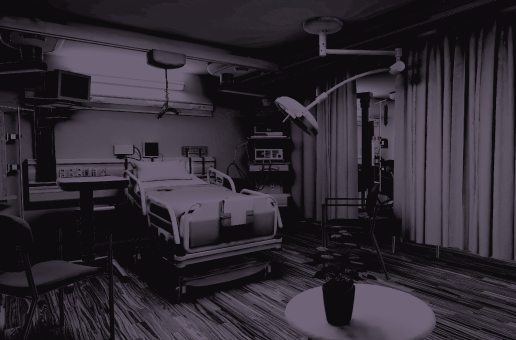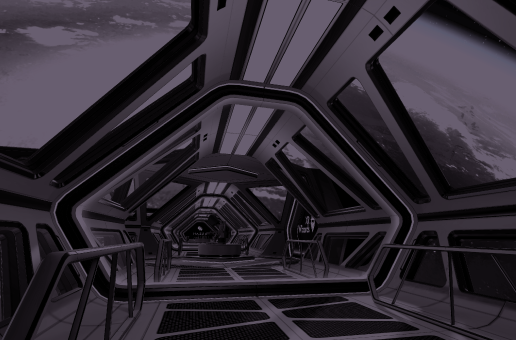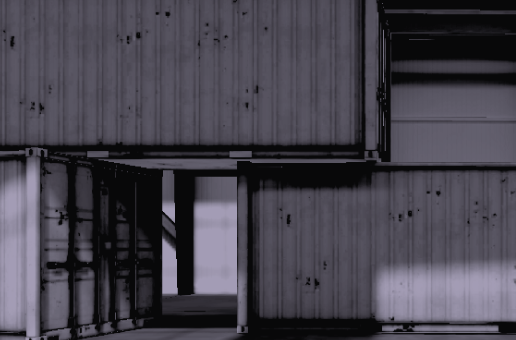Table of Contents:
The metaverse has already begun to go beyond its obvious applications in the world of entertainment and gaming, but it might be hard for some to envisage how it could be useful in other areas. One of these areas is the production of goods. After all, you can’t make physical objects within the metaverse, so how could it be used in industry? It turns out that there are many ways in which the metaverse can be used for manufacturing. In fact, XR Wizards’ Mazer platform is tailor-made for the manufacturing industry. This article will consider some of these ways in which the metaverse is being used for industry and where they might take us in the future.
Metaverse in industry = Saving time and money
As explained in many of our Mazer blog posts on the metaverse, this technology allows people to transcend physical boundaries in a much deeper way than any technologies that have gone before. While we’ve had the ability to communicate remotely for a long time, we’ve never been able to move seamlessly from our physical environment into a virtual one as if they were the same space. With the metaverse, this is now possible through VR solutions such as the Mazer platform, which allows industry workers to attend fully immersive, engaging meetings with customers, clients, and co-workers from far flung locations in a high-tech environment without leaving the office, or even their home if that’s what they want. But, for the manufacturing industry, the metaverse has so much more to offer.
Digital Twins in Industry Sector
The digital twin (covered in a recent Mazer blog post) has the potential to completely revolutionize the industry sector and, in fact, is already doing so. To put it simply, a digital twin is a virtual copy of a real-life object, place, or process. It can be used to create realistic prototypes of products before any production even takes place, saving time and money on early versions of products which may be completely unfit for purpose. Adobe has already begun its journey into the metaverse, an ideal next step for a company with expertise in creating 3D digital tools. They recently brought out a metaverse playbook, partnering with companies such as NASCAR and NVIDIA to develop metaverse technologies for the future.
But digital twins aren’t only used to test out objects, they can also be used to simulate processes. For example, Unilever is already using them to reduce the waste from its production processes. Meanwhile, car brand BMW have recently implemented NVIDIA’s Omniverse platform to build a digital twin of their factory to test run processes in a fully realistic way. This could be tremendously useful for manufacturing in the future as the metaverse for industry will allow producers to streamline supply chain operations and other processes in a safe and easy way in the virtual world. With the Mazer platform, for example, the VR representation of your facility can be integrated with its real-world counterpart in real time in order to simulate various production scenarios which can inform the decision-making process.
Another car manufacturer, Hyundai, have done something similar, constructing a meta-factory which exists fully in the virtual world to test processes in the metaverse before rolling them out into their real-world factories. Car companies are often the first to champion this kind of new technology, but brewing company AB InBev have used it to test-run their brewery and supply chain workflows, and Siemens have also made use of a digital twin to do something truly forward-thinking and innovative. They used it to simulate a small area of Berlin to see how they could build a more carbon neutral city. With such world-changing ideas already being put into action, it’s clear that industry can make huge, revolutionary changes with metaverse technologies.
Unlock the future with Mazer: Your innovation partner.
New opportunities for collaboration
The metaverse for industry will also provide many more opportunities for designers, inventors, and creators to collaborate with others and get their ideas out there. Imagine the very best minds from research and development teams around the world collaborating within a fully immersive 3D environment where they can share ideas, demonstrate prototypes and manufacturing processes, and tinker with each other’s creations. These insights could easily be shared with stakeholders to get ideas and input from all sorts of minds before committing to a course of action.
Along the same lines, with Mazer’s unique features, virtual reality objects can be handled by several different workers at the same time. What’s more, these workers don’t have to be in the same location – they can be spread all around the world while working on the same virtual manufacturing line together. The ability to bring experts together in this way facilitates all sorts of actions in manufacturing and has the potential to spark inspiration in ways that were never possible before. Who knows what innovations might come out of such metaverse collaborations?
Technical issues will also be easier to deal with. The Mazer platform, for example, allows employees to collaborate through a virtual reconstruction of the affected facility to fix any technical issues they may have. All they need is a pair of augmented reality glasses, and a technical expert can instruct them in a virtual meeting by annotating the image appearing through the glasses. This process is already in use across various industries and is fast becoming the norm for solving complex technical problems.
The ease-of-access and the democratic side of the metaverse will also open the floor to novice designers and more ordinary people with great ideas. As long as a person has access to the metaverse and can learn the necessary skills, they will be able to build metaverse prototypes of any idea they might have. More people will have the ability to design products as the tools required will be more accessible and affordable for everyday people. This could lead to innovative ideas coming into the mainstream that may never have seen the light of day in the pre-metaverse world.
An improved customer experience for industries
The opportunities for customers will also be improved in the metaverse for industry. At the moment, if you’re buying a new product online, or maybe getting something tailor made to certain requirements, you can never really know exactly how it will look in a 3D space until you receive it. Yes, you can see 3D models on a screen and read off measurements, but nothing compares to being able to view and interact with an object before you buy it. This will be possible in the metaverse, making the purchasing process much smoother and reducing the number of customer returns.
Mazer’s customized metaverse spaces can also be used to improve the customer experience. Companies have the ability to create a multi-space VR showroom which can be fully integrated with their existing website to give customers an insight into the manufacturing process. They can also show off products at manufacturing trade shows and offer customers a tour of a production facility, no matter where they are in the world. And all of this is provided with the highest security protocols in place. Created by IT experts from the banking industry, they are sure to keep VR spaces fully protected.
Finally, the metaverse for industry can be used for enhanced customer testing. Customers can be invited to interact with product prototypes in the metaverse before giving feedback, and all without damaging the product or putting their health at risk. Companies can gain insights from such testing more quickly and more safely than before as customers can do the testing from home, for example, streamlining the whole process and allowing them to bring products to market faster as well. Last year, a Korean research institute created a virtual metaverse factory where users could explore and observe the manufacturing process for themselves. They could even interact with the machines to see how they work. This technology could be made accessible to everyone through the metaverse, making the whole production process more transparent, with customers able to fully visualize and track the lifecycle of a project to make sure that the things they buy are ethically produced and the factory processes are safe and fair to employees.
Final Thoughts
The metaverse seems to be the perfect place to streamline the manufacturing process. There are so many ways that it can help companies, from customer engagement to troubleshooting technical issues. And with companies like XR Wizards creating enterprise-only virtual platforms aimed at providing the reliability, scalability, and flexibility that the manufacturing industry demands, there is bound to be more interest in these technologies in the future.
Read also: What Is A Metaverse Avatar
How can the metaverse benefit the manufacturing industry?
The metaverse allows industry workers to attend immersive virtual meetings, collaborate on manufacturing processes, and troubleshoot technical issues remotely.
In what ways can the metaverse improve the customer experience in the manufacturing industry?
The metaverse enhances customer experience by providing virtual showrooms, integrated with websites, offering insights into the manufacturing process. Customers can interact with products before purchase, reducing returns. Additionally, companies can invite customer testing in the metaverse.
How does the metaverse address transparency and ethical concerns in the manufacturing process?
The metaverse promotes transparency by allowing customers to visualize and track the lifecycle of a project.
Unlock the future with Mazer: Your innovation partner.








